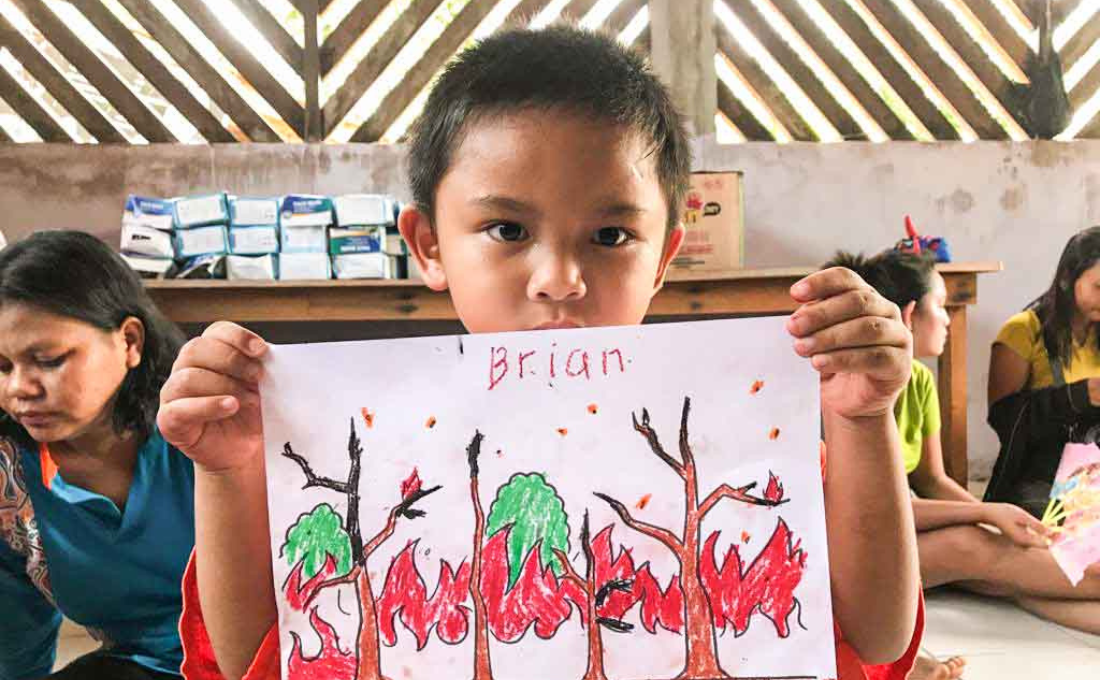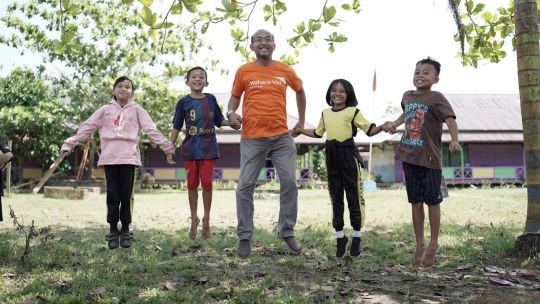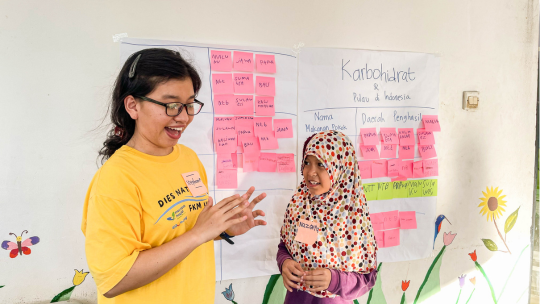Anticipating and Responding to Haze in West Kalimantan

Every year, provinces on the island of Borneo are covered in haze due to forest and land fires. Although local governments have regulations to limit land clearing by burning forests, this situation requires a comprehensive solution. Forest and land fires in Kalimantan are also increasingly difficult to control due to the influence of climate change which is increasingly extreme. As happened in 2023, several provinces in Kalimantan had declared a haze emergency response. Forest fires turned out to be widespread and difficult to control because they coincided with the phenomenon of warming Sea Surface Temperatures known as El Nino.
West Kalimantan, for example, an area where WVI assists several districts, also experienced haze again due to forest fires in the second semester of 2023. The haze made the air quality very bad and dangerous for sensitive groups, one of which is children. At its peak, schools in several districts in West Kalimantan had to be closed so that students could avoid exposure to bad air to breathe. The government also urged students to reduce their outdoor activities to avoid inhaling air that can cause Upper Respiratory Tract Infection (URTI).
Facing this situation, from August to September 2023, WVI conducted a response to the West Kalimantan haze disaster. This disaster response was carried out in line with the response declaration made by several local governments in West Kalimantan. Within two months, WVI together with partners and communities in Sekadau Regency, Bengkayang Regency, Melawi Regency, Sintang Regency, and Kubu Raya Regency implemented several activities to help reduce the risk of haze for children and communities.
As a quick-response and preventive measure, WVI distributed children and adult masks at early childhood centers, schools, and villages. Proper use of masks can help reduce the risk of children and communities developing URTI.
In partnership with the government in the five assisted districts, WVI also facilitated workshop on anticipatory actions so that the impact of forest and land fires that pose a risk to children and communities in West Kalimantan can be well managed. Especially because this situation has not only happened once or twice in Kalimantan.
WVI also socialized the dangers of haze to children in the assisted villages. In this activity, children gained insight into the dangers of haze for health and what needs to be done when haze occurs. As the most vulnerable group, children must be equipped with the right insights about this disaster. In addition, children can also become agents of change who speak out about the importance of addressing the root causes of haze in Kalimantan.
"I don't want to join my mother in burning the fields anymore. I'll cough later. I'll play at home, so I won't get smoked," said Brian, a preschool student in a WVI-assisted village in Melawi. Although Brian's parents currently have no other way to clear land, at least Brian's parents are also aware of the dangers of haze for their child's health. During this time, many parents also brought their children to the forest burning area because there was no other family who could take care of the child at home. Finally, the child must constantly breathe dirty air. Moreover, children's safety is also threatened because they are close to the burned forest area.
From this socialization, some mothers also committed to no longer take their children when clearing land. The mothers will try to keep the children at home, either by one of the parents or by other caregivers.
In the years to come, climate change will have a greater impact on our lives. Especially in areas in Indonesia that are prone to forest fires and drought. Therefore, every party, be it the community, government, religious or cultural leaders, should work together to develop anticipatory plans. Preparedness and adaptability will greatly protect children, people with disabilities, the elderly, and everyone from the impact of disasters.
Writer: Mariana Kurniawati (Communication Executive)



